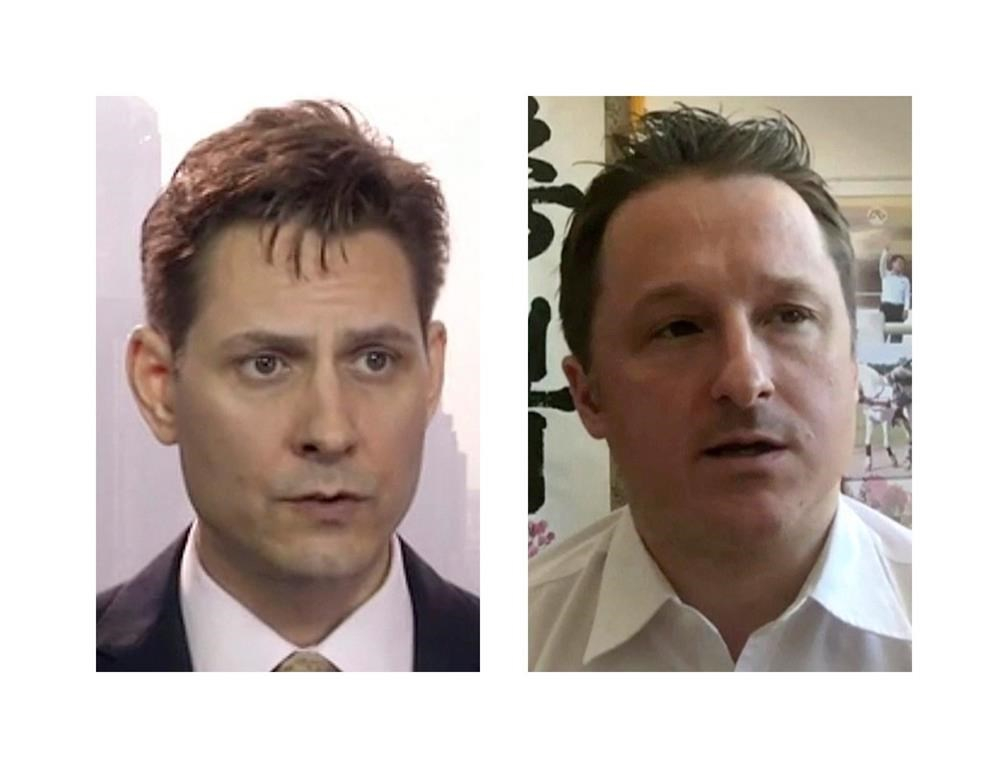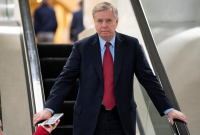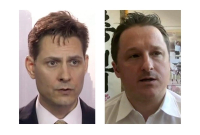Support strong Canadian climate journalism for 2025
Prime Minister Justin Trudeau has dismissed reports in China that two imprisoned Canadians tried to steal state secrets from the People's Republic.
Trudeau said Monday it is unfortunate China continues to push forward with detentions of former Canadian diplomat Michael Kovrig and entrepreneur Michael Spavor.
They were arrested in December by Chinese authorities and accused of violating the country's national security more than a week after Canada arrested Meng Wanzhou, the chief financial officer of Chinese tech giant Huawei Technologies, at the request of the U.S., which wants to extradite her for fraud.
"We are a country of the rule of law. We will ensure that that rule of law is fully respected and we will go through those processes in a proper and rigorous way," Trudeau told reporters in Prince Edward Island.
"It is unfortunate that China continues to move forward on these arbitrary detentions."
An anonymously sourced report in China's state-controlled Xinhua News Agency reported Monday that Kovrig and Spavor worked together to steal state secrets, linking their cases for the first time.
The International Crisis Group, where Kovrig worked at the time of his arrest, vehemently denied any suggestion he was involved in spying.
"We are aware of the Xinhua report of 4 March but have heard nothing official about any charges being laid against our colleague, Michael Kovrig," said Hugh Pope, the organization's communications director.
"Michael's work for Crisis Group has been entirely transparent and in the open as all who follow his work can attest. Vague and unsubstantiated accusations against him are unwarranted and unfair."
Kovrig and Spavor have been imprisoned without being formally charged or granted access to lawyers, and their Canadian consular visits have been limited to approximately one a month — while Meng has been released on bail and is living in a Vancouver mansion.
Meng's lawyers said Sunday she would pursue a civil lawsuit against the Canadian government over her Dec. 1 arrest.
The suit filed with the B.C. Supreme Court on Friday is against members of the Canadian Border Services Agency, the RCMP and the federal government.
It seeks damages for false imprisonment based on multiple alleged failures of government officials to comply with the rule of law upon her detention, search and interrogation at the Vancouver airport on Dec. 1.
The allegations have not been proven in court and the RCMP and the attorney general's office did not immediately respond to requests for comment.
David Mulroney, the former Canadian ambassador to China between 2009 and 2012, criticized the Chinese response.
"Let's ask China's ambassador to Canada whether Mr. Kovrig and Mr. Spavor are free to file a similar suit against their Chinese captors," Mulroney said on Twitter.
Chinese Foreign Ministry spokesman Lu Kang was asked Monday at a briefing in Beijing whether that amounted to a double standard, but he brushed aside the suggestion.
"China has strictly fulfilled our due obligations as required in the China-Canada Consular Agreement," Lu said, according to a translated version of his remarks posted to his department's website.
He said China "took compulsory measures" against Kovrig and Spavor, because they were suspected of undermining China's national security.
"I believe you are well aware that it is common practice for all countries in the world to deal with cases concerning national security in this way," said Lu.
"China has made necessary consular notifications to the Canadian side and fulfilled our due obligations as required in the China-Canada Consular Agreement."
As for Meng's treatment by Canada, Lu said it amounted to "a grave violation of her legitimate rights and interests and also constitutes a serious political incident."





Comments